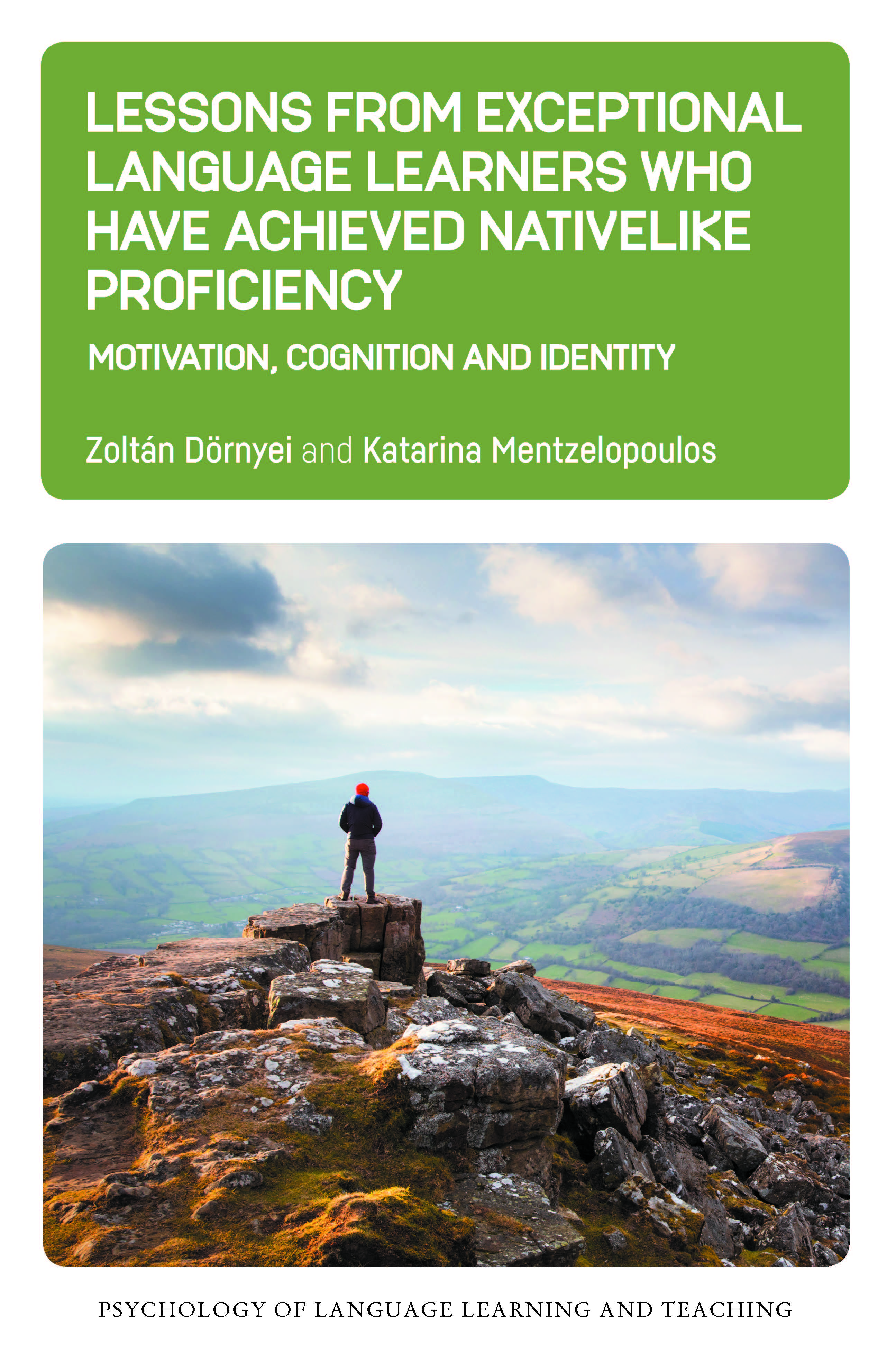Wednesday, 23 November 2022
Learning a new language is one of the most common New Year’s resolutions, however, it can be tricky. That’s why experts the University of Nottingham have written a series of books to help people master new linguistic skills.
Katarina Mentzelopoulos, a researcher at the University of Nottingham, and the late Professor Zoltán Dörnyei have co-authored ‘Lessons from Exceptional Language Learners Who Have Achieved Nativelike Proficiency: Motivation, Cognition and Identity’ and ‘Stories from Exceptional Language Learners Who Have Achieved Nativelike Proficiency’. The books explain that, although there is no ‘silver bullet’ for learning a new language, there’s plenty of advice that can help, including the following tips from multilingual speakers.
Top tips for learning a new language
- Believe you can do it. Timur speaks Russian, English, Norwegian, Thai and Burmese. He explains: “You kind of programme your brain to believe what you can or cannot do. So, this is something I tell myself: ‘It’s doable. You can. You can do it. And so just do it’. I know that learning a language is not easy. It’s difficult, but it is attainable.”
- Set yourself reachable goals. “I think one of the main things is setting goals that aren’t too far away from you,” explains Ira, a Dutch and English speaker. She adds: “So if you’ve never really encountered that language before, it can be really demotivating to be like, ‘Oh, I want to be able to speak to everyone for five hours in a row’ because you feel like you’re not going to achieve it.”
- Have fun. Kristin speaks Norwegian and English. She says: “I think [what was important for me was] just an interest in using the language in day-to-day life. It could be reading, watching TV, writing, anything… you need to want to use it.”
- Don’t be afraid to put yourself out there. “It’s about having the courage to go out there. It’s not about being by nature extroverted, but knowing that that’s a good thing to do, so doing it anyway,” explains Amelia, who speaks English, German and French. “Because language is something that has to be used, and you have to be engaged with it. And maybe that is why it’s a lot to do with having the courage to get it wrong.”
- Connect with people. Joy speaks English, Portuguese and Icelandic. She says: “I think part of it is also valuing somebody else’s language as an extension of their identity. Valuing them, wanting to communicate in a way that expresses appreciation for it, identifying with them. Learning language was successful for me because I just really loved the people I was interacting with.”
- Be kind to yourself. Sarah speaks English, Hungarian, French, German and Italian. She says, “You have highs and lows, and sometimes you reach a plateau. But you do push beyond it. I think you just have to not be too hard on yourself and know that some days it just doesn’t go as well as others.”

Katarina Mentzelopoulos, Co-author and Researcher at the University of Nottingham says: “What we found was that, while learning a language can be a long process, it can also be a very exciting and meaningful one. Writing and researching for this duology, we found ourselves inspired in so many ways by these learners who beat the odds, and we hope their stories will help to inspire you too.”
Co-author, Professor Zoltán Dörnyei, was a member of the University of Nottingham’s School of English for over twenty years and was a dearly cherished mentor and colleague. You can read more about his life and work here. He is sorely missed.
Both books are now available to purchase either directly from the publisher, Multilingual Matters, or via major retailers including Amazon and Wordery.
Notes to editors:
About the University of Nottingham
Ranked 97 in the world and 17th in the UK by the QS World University Rankings, the University of Nottingham is a founding member of Russell Group of research-intensive universities. Studying at the University of Nottingham is a life-changing experience, and we pride ourselves on unlocking the potential of our students. We have a pioneering spirit, expressed in the vision of our founder Sir Jesse Boot, which has seen us lead the way in establishing campuses in China and Malaysia - part of a globally connected network of education, research and industrial engagement.
Nottingham was crowned Sports University of the Year by The Times and Sunday Times Good University Guide 2024 – the third time it has been given the honour since 2018 – and by the Daily Mail University Guide 2024.
The university is among the best universities in the UK for the strength of our research, positioned seventh for research power in the UK according to REF 2021. The birthplace of discoveries such as MRI and ibuprofen, our innovations transform lives and tackle global problems such as sustainable food supplies, ending modern slavery, developing greener transport, and reducing reliance on fossil fuels.
The university is a major employer and industry partner - locally and globally - and our graduates are the third most targeted by the UK's top employers, according to The Graduate Market in 2024 report by High Fliers Research.
We lead the Universities for Nottingham initiative, in partnership with Nottingham Trent University, a pioneering collaboration between the city’s two world-class institutions to improve levels of prosperity, opportunity, sustainability, health and wellbeing for residents in the city and region we are proud to call home.
More news…